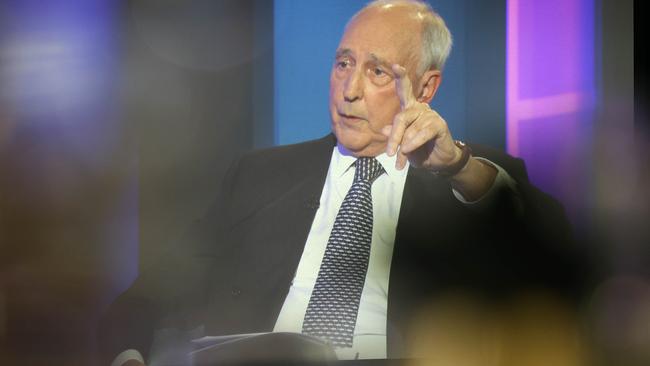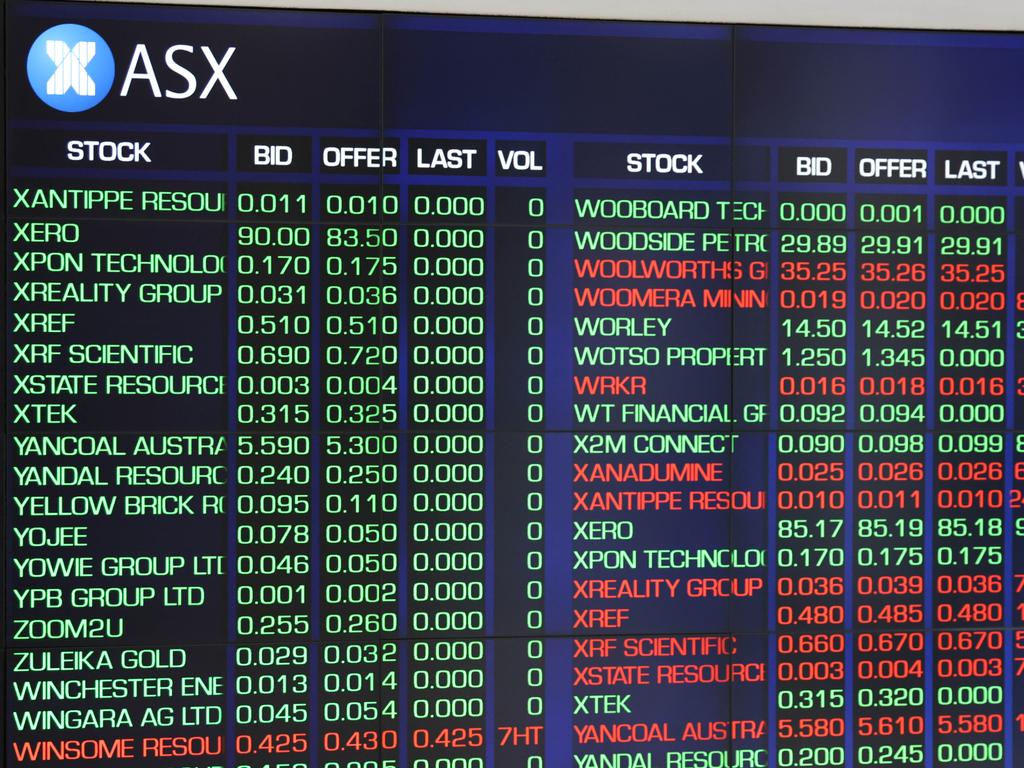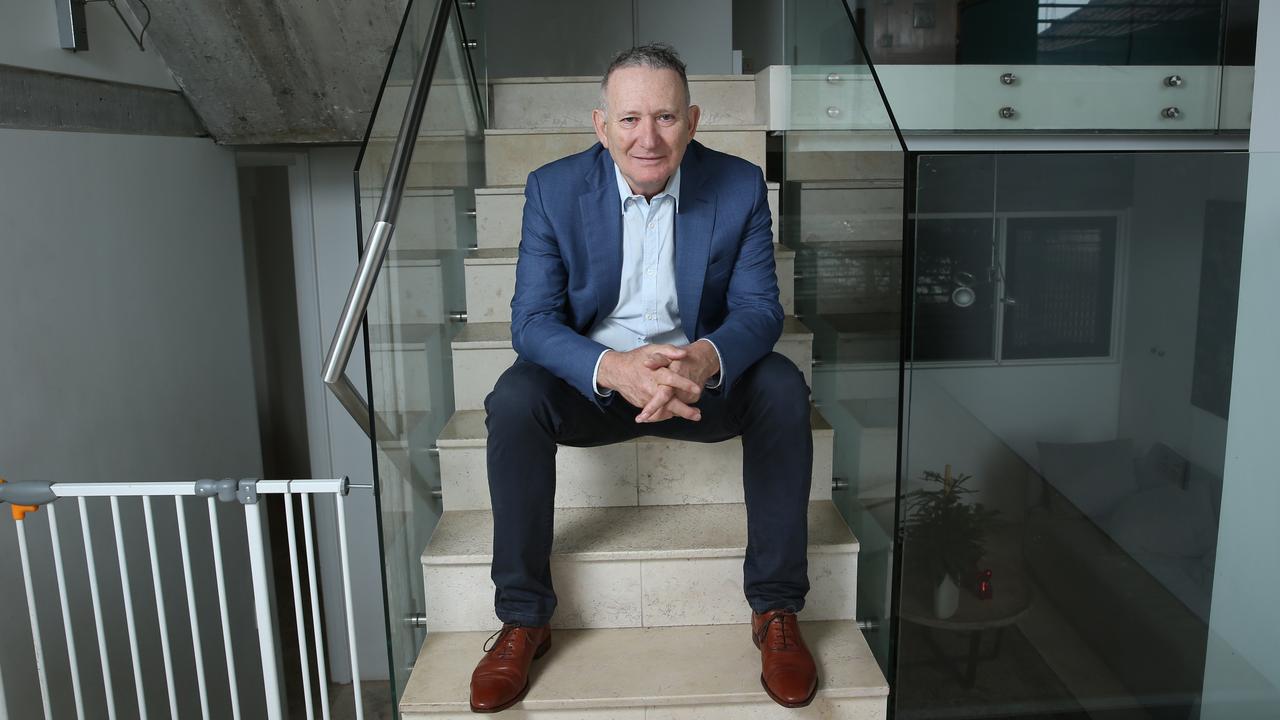Paul Keating’s anger at lost years of savings in superannuation
The father of the $3.5 trillion compulsory superannuation system is still angry at moves to delay increasing the guarantee to 12 per cent.

The father of the $3.5 trillion compulsory superannuation system, former prime minister Paul Keating, is still angry at moves to delay the increase in the super guarantee to 12 per cent of wages.
“We lost 20 years in getting from 9 per cent to 12 per cent,” he said in an interview with The Weekend Australian.
He said the Coalition “hated” compulsory superannuation as it didn’t want any money being handled by people associated with unions and wanted to “drain the bathwater” of savings by coming up with new ways of dipping into super ahead of retirement.
Mr Keating first mooted the idea that compulsory super should go up to 12 per cent of wages in a speech to the Graduate School of Management at UNSW in 1991.
He said this what was needed to allow people to have a decent level of retirement.
Sooner after, under the Hawke government as a result of Mr Keating’s pressure, superannuation was legally mandated to rise from an initial 3 per cent in 1992 to 9 per cent by 2001.
A move to increase this to 12 per cent by the previous Labor government was put on hold by the Abbott government under then treasurer Joe Hockey.
The superannuation guarantee is set to go up from 10 per cent to 10.5 per cent on July 1, but won’t reach 12 per cent until 2025.
Mr Keating said the aim of 12 per cent was to give workers a replacement rate of about 75 per cent of their salary in their retirement if they could save at that level for their entire working life.
“Between (John) Howard and (Peter) Costello and Abbott and Hockey the increase in the SG from 3 per cent was delayed for 20 years,” he said.
“The Liberals hate superannuation because they can’t live with the idea of anyone connected with the union movement managing capital, particularly big capital.”
But Mr Keating said having the super guarantee at 12 per cent was enough and he did not support calls for it to rise to 15 per cent.
He said the super system – set up as a result of negotiations between Labor and the union movement dating back to the 1980s – had allowed some 12.5 million workers to accumulate an average of $280,000 in their own retirement savings accounts, an amount unheard of in other countries.

“Without compulsory superannuation, there is no way that working Australians would ever have that sort of money,” Mr Keating said. “Not a chance.”
A recent survey of American households showed that 55 per cent did not have access to funds of more than $10,000, he added.
“The average Australian has more than $200,000.”
In designing the system, Mr Keating specifically rejected the recommendation by a national inquiry set up by the Whitlam government in 1973. That review said super should be through contributions into government-run funds.
“I wanted a system where the individual retained the capital and didn’t give it to the government,” Mr Keating said. “It was an account with your name on it. The capital is yours and it doesn’t belong to the government.”
But he says the key to allowing ordinary people to have their own retirement savings accounts was to make sure that it was preserved until their retirement and could not be accessed at will or when a person changed jobs, which had been the case with the previous superannuation system that was run by individual companies.
He said the introduction of compulsory super had also allowed Australia to address a chronic lack of domestic savings.
“I wanted to tackle the savings capital imbalance so we were no longer mendicants to the world with a begging bowl to fund the current account deficit,” Mr Keating said. “(It) has virtually wiped out the net income deficit.”
He said the growth of the compulsory superannuation system had “provided massive capital” for the Australian stockmarket. “Most big new floats are supported by the super funds,” he said.
The system had seen the rise of companies investing in infrastructure like Transurban, he added.
“We have now got, through companies like Transurban, a system of capital city freeways, of solar and other long-term investments which could not have been done without the support of superannuation,” Mr Keating said. “We are now running a current account surplus for the first time since Arthur Philip dropped anchor in Sydney Cove. We have joined Germany, China and Japan as a capital exporting country.”
He said capital from the sector allowed Australia to get through crises without recession.
But Mr Keating said there were real issues facing the system, particularly the gender gap in balances between men and women.
“One of the big issues facing Australians is women who have been divorced or separated or single who are moving into their 60s with no accommodation,” he said.






